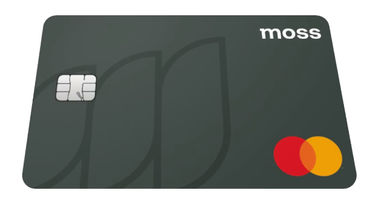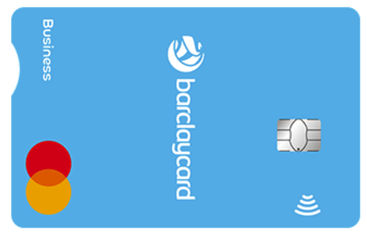Credit helps UK startups manage their costs and scale. Business credit cards can be a great option if you own a promising startup. Your startup can access low-interest-rate business credit cards even without a credit history.
Our research showed the Capital On Tap business credit card is the best for UK startups for many reasons. Low fees and APR, high rewards, better cash flow, and low annual turnover requirements are some of the top attributes.
We’ll also share insights into a range of other cards and benefits. This includes factors affecting your approval chances and how business cards can help build a business credit score. Plus much more!
What Are the Best Business Credit Cards for Startups?
8 Best Business Credit Cards for Startups Compared & Reviewed
The top cards for startups at a glance:
Best for Overall: Capital on Tap
Best for Membership Rewards: American Express Business Gold Card
Best for Higher Limits: Moss Business Credit Card
Best for Startups Without Credit History: Soldo Company Card
Best for Low Fees: Metro Bank Business Credit Card
Best for Protection: Santander Business Cashback Credit Card
Best for Managing Cashflow: American Express Basic Business Card
Best for Discounts: Barclaycard Select Cashback Business Credit
Pros
- Enjoy an interest-free period of up to 42 days
- Integrate with accounting software like Sage
- Discount software like Slack, Dropbox, among others
- Preload your card with your funds to enhance credit limit and benefit from more cashback
- Spend upon approval using virtual cards
Cons
- Variable interest rates based on credit health
- Avios travel points only for paid Business Reward card customers
- Business must be a private limited company or limited liability partnership
- Daily cash limit of £400
Startups can use credit to overcome scalability challenges. With a low monthly revenue requirement of just £2,000, the business credit card from Capital on Tap is perfect for this. It enables startups to secure funding at attractive rates, starting at a 15.5% APR.
You could be asked to sign a personal guarantee agreement if you don’t have any business credit history. But their flexible repayment options can somewhat reduce the financial burden of startups. A decent credit limit of up to £250,000 should help small- and medium-sized startups improve monthly cash flow or plan expansions.
For every pound you spend using this card, you earn 1 point back, which can be cashed in or used against office supplies, credit card bills, or dining out with colleagues. You may even distribute free business credit cards to your employees for expenses like business travel. This way, you could maximise the 1% cashback rewards on all cards flowing into the credit card account. You also control card spending limits and freeze options from the app.
I find the Capital on Tap business credit card really useful for startups. The ability to preload funds and earn cashback on every purchase is a great way to manage business expenses. The interest-free period also gives me flexibility with cash flow.
Cash withdrawals are limited to £400 daily, but there are no ATM or annual fees. Even overseas transactions are free of foreign exchange fees. If your business is ready for more rewards, upgrading to the £99 business credit card could fetch 10,000 bonus points for spending £5,000 in the first 3 months. There’s a trove of other benefits, too. If you hit a roadblock, simply contact them over the phone.
Pros
- No preset spending limit or interest rates
- No annual fee for the first 12 months
- Multiple insurance coverage and refund protections
- Statement credit of £100 annually for tech purchases from Dell
- Over £500 in annual discounts on Airbnb, Amazon, British Airways, and Sainsbury's
Cons
- Must clear outstanding balances to avoid interest fees and other charges.
- You pay 2.99% of the transaction amount for non-sterling transactions.
- A statement copy costs £2
- Returned payment fee of £12

Eligible startups with decent monthly spending can benefit from this Amex business credit card. For spending £6,000 in the first three months, you earn 40,000 reward points. These can be used against travel, advertising, office supplies, or payments via PayPal.
With no pre-set card spending limit and an interest-free period of up to 54 days on eligible purchases, you can meet unforeseen expenses and keep the cash in your account longer. But you must repay outstanding balances every month to avoid penalties.
You earn one point for each £1 spent using the card. Meanwhile, bookings made through Amex Travel also fetch one point for each pound spent. These points can be used to pay for future flights, hotels, or cab bookings. There’s no limit to the points you can earn.
The American Express Business Gold Card has been a great asset for my business. With no preset spending limit and up to 54 days interest-free, it helps me manage cash flow effectively. Plus, the reward points are a nice bonus for future expenses.
You can get 20,000 extra points for using the card between 14-17 months of membership. An additional 10,000 points can also be yours every quarter if your business spending each quarter surpasses £20,000.
Offer your employees up to 20 cards for free, and reach cashback goals faster as they pay for business expenses. You have control over spending limits and oversight on transactions with an option to block accounts.
Pros
- Compliant with leading industry security standards
- Automate invoicing and accounting to minimise errors and costs
- A high monthly credit limit
- Integration with leading UK billing software
- Add Moss cards to Apple Pay to pay using Apple devices
Cons
- Different pricing tiers. Must book a demo for details
- Cashback rewards only if your transaction volumes are high
- Monthly subscription fees
- These cards cannot be used at ATMs
- 2% forex fees on all non-sterling transactions
- Physical card delivery can take up to 10 days

Startups with Moss Corporate Business credit cards can access monthly spending limits as high as £2.5 million. However, your startup must have over 10 workers or a gross annual revenue of over £2 million to be eligible.
Like business charge cards, you don’t pay interest fees if you clear all outstanding balances every month. Moss offers flexible repayment options of up to 60 days. You can issue your workers unlimited physical or virtual business credit cards and track their spending in real time. This way, you can prevent fraud and overspending with quick controls on the app.
Startups also look to reduce accounting costs and billing errors, which could translate to unnecessary overheads. A membership with Moss gives you access to a payments and invoicing ecosystem. You can use Moss’ integrations with billing software to automate accurate receipt capture to simplify your monthly accounting process.
I love how Moss integrates with my accounting software, making invoicing and reporting so much easier. The high credit limits and control over employee spending are perfect for growing my business. However, the 2% forex fee can add up on international transactions.
What’s more, Moss enables cross-border business for a forex fee of 2% of the amount per transaction. Your access to features is based on the subscription plan. To learn more about registration, you have to schedule a one-to-one demo. Their top membership level offers access to a dedicated customer success manager and onboarding support.
Pros
- Very safe for startups
- Data entry automation and accounting tools
- Easy approval without turnover requirements
- No impact on credit score
- Dedicated customer support team
Cons
- Low daily POS card transaction limit of 50
- Tier-based monthly plans
- Charges for new physical cards
- Forex fees of 2% of transfer amount
- Lower annual limit of £4,000 for ATM activity
If you are a fresh startup looking for ways to give employees access to company funds, the Soldo Company business prepaid card can help make company finances easier. You can preload company funds on up to 20 cards for your workers with custom limits using Soldo’s Standard plan, starting at £21 per month.
Each physical card costs £5 a piece but can be customised based on several expense categories, like travel or fuel. You control spending anytime. Soldo’s seamless integration with accounting software makes monthly expense management and reporting accurate and cost-effective. To facilitate business on the go, Soldo ensures you can use these Mastercards to make payments via Apple Pay or Google Pay.
Applying for the card doesn’t affect your credit score, so businesses other than startups, like those with poor credit histories, can also benefit from these company cards. Soldo’s secure business payment and tracking system is founded on a secure platform. It is FCA-regulated, part of the UK’s G-Cloud network, and ISO/IEC 27001 and ISO/IEC 9001 certified.
I appreciate the simplicity of the Soldo Company Card for managing employee expenses. The integration with accounting software is seamless, and the prepaid feature ensures control over spending. It’s also great that it doesn’t impact my business’s credit score.
Regarding fees, you are charged 1% of the transaction amount for cash withdrawals, while outbound transfers cost another £0.75. Overseas money transfers attract a 2% fee for the basic monthly plan. The fee goes down to 1% for higher plans. Beware of other charges for using services like balance inquiry.
Pros
- Relatively low fees, APRs
- No fees for transfers in Europe
- Award-winning services
- Dedicated customer support
- No upper credit limit
Cons
- A fee of 2.99% + £1.50 for cash withdrawals outside Europe
- No rewards system
- A business account with Metro Bank is mandatory
- Payments can be made only via direct debit
- Low daily ATM cash advance limit of £300
Startups will want this business credit card for making fee-free transactions in Europe with no annual fees. However, you must have a business current account and a decent business credit score to take advantage of the Metro Bank Business credit card.
With no upper credit limit, all customers pay an APR of 18.9%. You should make monthly minimum payments of £20 or the balance, whichever is greater, to stay in good standing with the bank.
You may also avoid accruing interest rates by making repayments in full every month. Metro Bank allows up to 56 days of interest-free period on eligible purchases to improve your cash flow. Be aware that you can only issue up to nine cards for your employees using one business account.
I’ve been using the Metro Bank Business Credit Card for fee-free transactions across Europe, and it’s been perfect for our needs. The interest-free period and dedicated customer support make it a solid choice for managing business cash flow.
Pros
- No upper limit on cashback earned
- No foreign transaction fee for purchases made in local currency
- Award-winning banking services
- Various ways to bank and manage accounts
- Make payments up to £100,000 in 24 hours using your current account; free for up to £25,000
Cons
- A current account with Santander is required
- Hard inquiry into your business credit profile could impact your credit score
- Different kinds of fees
- No bonus system or discounted gift cards
- Stringent eligibility criteria
All startups seeking assurance for the money they put into business accounts could find peace of mind with the Santander Business Cashback Credit Card. This card requires you to hold a Santander business current account. All funds in this account are insured up to £85,000 under the Financial Services Compensation Scheme (FSCS).
Regulated by the FCA, Santander’s card earns you 1% cashback on most purchases, directly deposited into your business account every month. In addition to benefiting from flexible credit limits, you can also avoid interest rate charges on balances by clearing monthly dues on time in full.
The bank offers an interest-free period of up to 56 days on various purchases. But you must make a monthly minimum repayment of 1% of the outstanding balance or £5, whichever is greater.
The Santander Business Cashback Credit Card is a great option for cashback on everyday purchases. I value the high security and FSCS protection, plus the ability to avoid foreign transaction fees. However, the annual fee is something to consider.
The high security and FSCS guarantee comes with an annual fee of £30 and a 3% fee on cash and balance transfer transactions. Late payment fees, returned payment charges, and trace fees also apply. The bank suggests that staying within the credit limit and making timely repayments can help avoid most charges.
Pros
- No annual fee or charges for domestic transactions
- Dynamic upper credit limit
- Up to 42 days of interest-free period
Cons
- Spending limit can be set or changed at any time
- No rewards system
- £2 fee for a statement copy

This Amex business credit card has no annual fees and can suit entrepreneurs who want to improve their monthly cashflow. This business charge card offers up to 42 days of interest-free payment period. You avoid fees by clearing outstanding balances on time.
Early-stage startups can also benefit from zero annual fees and a variable credit limit. As your business grows, you can issue up to 20 cards to your workers for free and maintain oversight of company spending. Managing supplementary cards and tracking company cashflow becomes easy with the Amex app.
You can request benefits such as rewards and points separately, but this would cost you extra money. There are also several fees that you must be aware of. You pay a £12 fine for late payments or returned payments. For non-sterling purchases, you lose 2.99% of the converted amount towards fees per transaction.
Pros
- Award-winning business credit card
- Rebates on a range of business-oriented products
- Make payments using the card via Apple Pay
- Up to 56 days of interest-free payment period
Cons
- A £3 fee for a statement copy
- Might require a good business credit history for approval
- APR on the higher side
- Hard inquiry into business credit report

Startups can earn 1% cashback on all eligible purchases. The cashback is directly deposited into your account every month.
While there are no annual fees, your business credit card APR starts at 27.5%, depending on your business credit history. This isn’t the lowest rate available out there. You might be eligible for this card if your startup has an annual turnover of over £10,000. Once approved, you can manage cashflow better with 56 days of interest-free payment period.
Issuing additional cards to your business partners is also easy. The cashback rewards they earn using their cards are also sent monthly to the linked business account.
Barclays offers free access to the billing and invoicing platform Freshbooks, which costs £260 annually. You also benefit from a range of offers like 66% off on AA plans for drivers’ breakdown coverage or 10% off on AXA Health's business healthcare plan.
The cashback deposited doesn’t count towards the monthly minimum payment amount of £5 or 1% of the outstanding balance, whichever is higher. Missing the deadline attracts a late payment fee of £12. A 3% fee is also applicable on the amount for cash transactions and a 2.99% fee for non-sterling transfers.
How We Picked & Tested the Best Business Credit Cards for Startups
Our research revolved around the financing needs of UK startups. We focused on how startups can save money on fees, benefit from rewards, and improve their credit history without being subject to stringent eligibility criteria. Here are the top attributes we considered for selecting the 8 best business credit cards for UK startups:
Expense management and billing integration: Proper accounting is crucial for startups, especially for pre-revenue ones who plan IPOs in the future. We have outlined several business credit card accounts, like Capital on Tap, that offer integration of your business invoicing with top accounting software like FreeAgent. Sometimes for free. This reduces costs and data-entry mistakes.
Annual Percentage Rate (APR): The business credit card APR could be a game-changer in the long run for your startup. We have listed credit cards with no APR or rates as low as 15.5%. Some even offer interest-free repayment periods of up to 56 days. Factors like your business credit profile, annual turnover, and repayment track records determine your APR.
Rewards and Cashback offers: Startups can get an extra boost with redeemable points and cashback that offset business expenses and even credit card bills. We have presented several corporate credit cards that offer great product discounts and a chance to earn thousands of points annually.
Security features: With rising cybercrime and the accelerating digitisation of UK startups, it is imperative to secure confidential business and client information. Our research led us to multiple credit cards that safeguard users, banking, and even funds with insurance and next-gen encryption compliant with leading regulators.
Eligibility criteria: It is wise to refrain from applying for a UK business credit card if you are not eligible. It could lead to an unnecessary hard inquiry in your business credit report. These stay on records for up to years. We ensure our credit cards suit pre-revenue startups, those with low annual turnovers or credit scores, and even firms with weak accounting capabilities.
Fees: Our efforts to find you the top business credit cards also went towards finding those with the lowest fees. There are many kinds of fees for using a business credit card, which we have detailed later. In this guide, you will find several credit cards that have no annual or cash activity fees. We even found some with no interest rates or forex fees across Europe.
What Is a Startup Business Credit Card?
Most businesses, especially startups, require credit to scale and thrive. Business credit cards are a form of credit that UK startups secure to improve monthly cash flow. Timely repayments build a business credit score that can help in securing larger business loans in the future.
While a business card is a revolving line of credit like a personal credit card, it is issued in the company's name. Business cards are designed for business purchases and transactions and often have perks unavailable for personal credit card holders.
Bookkeeping becomes easier with a business credit card. Founders and employees can also redeem points for cash, supplies, travel, dining, and bill payments.
How does a business credit card for a startup work?
When you borrow money using a business credit card, your company becomes liable to repay the amount, sometimes in full, within a stipulated time. Failure to pay on time leads to interest accruals, late payment fees, and a negative impact on business credit health.
Sometimes, new startup founders sign personal guarantees to secure cards, making them liable for repayments if the company can’t.
Like a personal credit card, you receive monthly statements and are generally required to make monthly minimum payments for outstanding balances. Your lender reports your timely repayments to credit reporting agencies (CRAs), positively impacting your business credit score. Unlike personal credit cards, you can issue multiple business cards to employees under the company's name.
Why Startups Need A Specialised Credit Card
Startups might need specialised business credit cards if they require targeted benefits or rewards. For instance, if a startup is heavily engaged in travelling, it can secure customised corporate cards that maximise travel and fuel rewards.
Ultimately, custom requirements depend on business needs and vary immensely across industries.
If you happen to find yourself with some idle cash, consider getting a business savings account for your organization to earn interest on it — and grow your business even further.
What are the advantages of business credit cards for startups?
Startups can benefit in several ways.
Separating personal and business finances: First, the integration features with billing software from many of our listed credit card providers help keep your card expenses separate from personal spending. At the same time, maintaining receipts and invoice approvals becomes seamless via a business account with app access.
Lower APRs and unlimited spending limit: If your startup has bright future prospects and strong financials, you could secure a business credit card with a lower APR. As your credit score picks up, you could achieve higher spending limits with no cap.
Low fees and introductory offers: We have compiled several company credit cards that charge no or a low annual fee, transaction costs, or foreign transaction fees, saving you a significant amount of money over time.
Better control of company funds: Several business credit cards offer an expense management interface and supplementary cards to give workers access to company funds. This allows you to fully control spending limits and transactions in real-time.
Best-in-class rewards: Company credit cards offer some of the best discounts for business products and rebates at popular merchants. You can even earn thousands of points on purchases. The flexibility to use them in diverse ways makes them more lucrative.
Cash flow management: Many credit cards allow up to two months of interest-free purchase periods. This duration allows you to hold cash longer, improving the firm's average liquidity. Remember, strong cash flow is a lifesaver during moments of extreme market volatility.
Should I be using my personal credit card?
It is not illegal to use your personal credit card for startup expenses. However, this can mix up personal and business expenses, making accounting cumbersome.
A personal credit card could be suitable for freelancers or sole traders. You can even use your personal savings account as a sole proprietor for business purposes, but a current account designed for self-employed individuals is recommended.
Overall, you could miss out on benefits when using a personal credit card for regular business payments. Remember, most banks offering business credit cards require you to open a current account. Below, we highlight some differences between business credit cards and personal cards.
Business credit cards come with higher or dynamic credit limits but generally cost more than personal cards
More personal credit cards offer introductory 0% APR periods than corporate cards.
Business credit cards unlock better perks and rewards than personal credit cards.
Business credit card applications involve relatively more rigorous documentation.
Business Credit Cards for Startups: What Does It Take?
Many emerging UK startups have no credit history or red flags in their profiles due to the economic upheavals stemming from the pandemic. Businesses with records of missed loan repayments or heavy credit utilisation could find it tough to secure reasonable APRs or even cards.
Eligibility criteria
Pre-revenue firms or those without credit history can work towards improving their profitability and fine-tuning business models to improve their chances of securing business credit cards. Some charge cards in our list could be easy to get hold of. They offer a way to improve your credit score by reporting your monthly repayments to CRAs. However, you must repay in full every month.
Most lenders also require you to hold a 25%+ stake in a UK-based startup or be a director at the firm. You also must be aged 18 or above and preferably a permanent UK citizen. To be eligible for a UK business credit card, the least you must be doing is generating money independently. Check the terms and conditions if you are asked to open a current business account with your credit card issuer.
If you apply for a business company card with mediocre credit scores, you could be asked for personal guarantees that make you liable for any company defaults. The APR could go up as well. Lenders could also tap into the personal credit history of founders of a startup without a credit history. This could impact personal scores individually.
Can I use eligibility checker tools?
Yes, there are many available online. These tools tell you which corporate credit cards have a high chance of approval. Your business credit profile is soft-pulled to determine the eligibility. Rest assured, this tool doesn’t affect credit scores.
Documents and details you need to supply
Document verification for a business credit card application can be extensive and take days or weeks. During the process, you submit copies of personal and business details to be examined.
The personal details you generally have to supply to the lender include:
Your name, date of birth, and nationality
Contact details like phone and email
Current and permanent residential address
Yearly personal income and revenue streams
Employment status and employer contact details
Business details that you might be asked to include are:
Name and nature of business
Company registration number
Registered business address
Details of stakeholders or directors or partners
Financial information like balance sheets, annual turnover, current liabilities
You might be asked to furnish further details like tax returns and asset structuring to process your application successfully.
Can you get a business credit card with no revenue or business income?
You should generate revenue to qualify for a business credit card in the UK. Lenders often check business income to gauge company or guarantor risk profiles. However, securing a company credit card doesn’t always require revenue records or a registered business status.
Credit score requirements for startups
UK business credit scores range between 0 and 100. Credit scores across CRAs like Experian and Equifax vary since each uses unique models to compute scores. If business credit scores exceed 80, a lender views startups as low-risk clients. You might secure low APRs, fees, and higher credit limits in this scenario.
Businesses with a credit score below 50 are considered high-risk entities. They may have recently started out or have missed repayments in the past. A low business credit score attracts personal guarantees and high APRs.
Establishing Credit (Fast) for Your Startup
Building a good business credit score from scratch requires consistent efforts. The fastest way to see an immediate jump in your business credit score is to make timely repayments in full every billing cycle.
Meanwhile, a strong business roadmap can help scale your operations and profits. Good company prospects positively influence your standing with the lender, which can translate to lower APRs and flexible repayment terms. This also reduces the chance of missing monthly minimum payments.
Can a new limited company get a credit card?
How long should I wait to apply for a business credit card?
Costs of Credit Cards for Startups
Here, we highlight the different costs of credit cards that UK startups face on a regular basis.
Monthly Fees
Monthly fees for using business credit cards can come in two forms. Some lenders offer a monthly subscription level where you pay a fixed amount based on your plan every month. Another way is that some credit card providers could charge you the annual fees on a monthly basis for account maintenance. This could involve using features, reporting tools, or general services.
Trace Fees
If you change your address without telling the bank, they might have to use resources to trace your current location. This is so they can ensure you receive any communication from the bank. The whole process could cost you a trace fee.
Missed Payment Fees
Based on your monthly billing cycle, you must repay a minimum of your outstanding credit card balance by a particular date every month. If you miss this deadline, you will likely pay a flat or a variable fee, depending on how late you are. Missed repayments also negatively impact your company credit score.
Foreign Transfer Fees
When making overseas business transactions from the UK, your payment processor might mark up the exchange rates used to convert the transfer amount. Or, your credit card provider may charge a flat percentage fee for non-sterling transactions. Most are transparent about it, but you must decide which option is best for you.
Transaction Fees
High transaction-volume businesses could keep losing money consistently to transaction fees. There are many business credit cards without any charges for local or European transactions. However, before accessing these premium features, you should be able to satisfy requirements like a good credit history and a decent annual business turnover.
Interchange Fees
This fee is charged by the card issuer every time you swipe a business credit card. Interestingly, the fee is fixed by the card network, which could be Mastercard. For UK card issuers, interchange fees are limited to 0.3% for credit cards.
Overdraft Fees
Overdraft fees could result from spending more money than you have in your current business account. However, some card issuers allow you to spend beyond the credit limit if you have enrolled for over-the-limit coverage. This is not recommended since it impacts your credit score.
Useful Features to Look out for in Startup Business Cards
Accounting features: Check if your startup credit card offers tools to help your monthly invoice approvals, receipts capture and compilation, and integration with accounting software. These features can save money and time while reducing manual tasks and errors.
Expense management tools: Companies like Soldo and Moss offer simple ways to issue company cards to employees and control who can spend what. Startup owners can set custom spending limits for each card, freeze them as needed, and check transactions from a smartphone app.
Targeted rewards: Look for credit card issuers that customise bonuses, points, and rewards based on your top business spend categories. You may request more air miles and fuel rewards if your business requires travelling. Some banks offer statement credits to offset annual tech expenses that could immensely help tech startups.
Flexible spending or credit limits: Many company cards have a dynamic spending limit, mostly depending on business revenue. As your business grows, the lender might automatically increase your credit limit or you can request they do so.
How to Choose the Best Business Credit Card for Your Startup
Choosing the best startup credit card involves several steps, from understanding your business needs to charting long-term membership costs. We list the most important considerations below:
Purpose of the card
Figuring out the core areas of credit card use in your startup can give you an idea. The American Express Business Gold Card can give you great discounts on office supplies and statement credits for tech expenses. If you want business healthcare coverage, the Barclaycard Select Cashback Business Card can work with its attractive cashback features.
Capital on Tap could be the way to go if you want Avios points to spend on trips and experiences. Similarly, we listed cards that reward for travelling, high-volume money transfers, and other business activities.
Check the eligibility criteria
When you have narrowed down the best company card for your startup, it’s time to check if your business is eligible. Lenders often clearly detail their requirements. Even if you have checked all the boxes, it is still advisable to get a second opinion from free eligibility checkers. This way, you won’t affect your business credit score.
Costs and APR
Before applying, check if the company card fees align with your spending capacity. There could be annual fees, costs for each transaction, and more. Fees, especially those that charge percentages of the transfer amount, grow with transaction size.
You can check the APR before accepting the credit card. It could be higher for many reasons, such as company stature, debt history, and current loans. If you are eyeing a charge card, gauge whether you can make payments in full each month. Many providers, like Capital on Tap offer interest-free periods for purchases that you can leverage to avoid interest charges for a longer duration. This helps you manage your company funds better.
Cashback and rewards
Business credit cards offer perks and rewards not available with consumer credit cards. Several company cards we have listed, including Capital On Tap, offer uncapped cashback and points on purchases. These can be redeemed to reward employees, pay bills, and offset company expenses. You could also benefit from sign-up bonus points and introductory 0% APRs.
Mobile app accessibility
Carrying out business on the go is becoming a global trend. These days, tasks like collecting payments, compiling transactions, managing company funds, and internal communications are done via smartphone apps. Check if your lender offers you app access to oversee accounting and carry out or block expenses in a few clicks.
Security features
Great features are not enough. Ensure the FCA or other authorities regulate your company card provider and adopt protocols like 256-bit SSL encryption. It is a plus if the lender offers multi-layered security options like 2FA, fingerprint or face ID recognition, and backup codes. Some are even ISO-certified and members of reputed cybersecurity communities.
Find a Credit Card to Help Your Startup Flourish
Ultimately, finding the right credit card depends on your startup—its situation, needs, and goals. Your startup is unique, so make sure you find a credit card that matches your priorities.
Capital on Tap is our personal fave. It's designed for small businesses, and you'll save money with its low APR and no annual, FX, or ATM fees. There are even cashback and rewards to boot.
| Name | Score | Visit | Disclaimer | |
|---|---|---|---|---|
 | 9.3 | Visit |
FAQ
Will a Business Credit Card affect my credit score?
Can I apply for a Business Credit Card online?
Can start-ups get business credit cards?
How much do business credit cards cost?
What's the difference between a charge card and a credit card?
Do business credit cards offer rewards?
What is a personal guarantee?
Are business credit card fees tax-deductible?
What happens if you cross your business credit card limit?
Can you get air miles with Capital On Tap?
Conclusion
When selecting a business credit card for your startup, consider factors like APR, rewards, eligibility, and integration with accounting software. Startups often benefit from cards offering low fees, high rewards, and flexible repayment terms to manage cash flow effectively. Look for cards that provide clear financial oversight, support for employees, and a variety of redemption options.
Capital on Tap is an excellent choice for startups seeking a straightforward credit card with valuable perks. It offers a competitive APR starting at 15.5%, with an interest-free period of up to 42 days. The integration with accounting tools like Sage can save time and reduce errors in financial management. Additionally, its 1% cashback on all purchases and no foreign exchange fees make it an attractive option for both local and international expenses. With a credit limit of up to £250,000, this card is ideal for growing businesses looking to boost cash flow and expand operations without incurring high fees.
.jpg)















.jpg)




